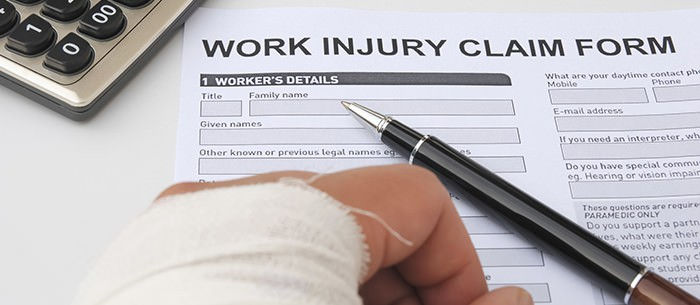No one ever sees it coming, but getting hurt on the job could happen to anyone. And as a child care provider, you have a lot of physical duties that make you even more vulnerable.
If you’re a nanny, you can roll an ankle while playing with the kids or burn yourself cooking. Housekeepers can slip and fall on wet floors and senior caregivers can strain backs while assisting their elderly employers.
If you become sick or injured while you’re on the job, you might be able to file a workers’ compensation claim to help pay for lost work time and medical expenses. Hopefully, you already know if your employer is covered by workers’ compensation insurance. Not all states require coverage and, even when they do, not every employer complies. Ideally, this is a question you asked in your interview process and the answer is yes!
“When a family has a workers’ compensation policy in place, they’re not burdened with paying their employee’s wages or medical bills while they’re out,” says Tom Breedlove, Director of Care.com HomePay. “The insurance company takes care of the benefits and the family can use the money they normally pay to their employee to hire back-up care while they recover.”
If your employer doesn’t have a policy, talk to them about it today. Care.com HomePay has a program called HomeStaff Protect that provides families with access to a top-rated workers’ compensation insurance provider. They can quickly receive a free quote and purchase a policy – even if they are not handling your payroll and taxes through HomePay.
If you’re ever injured on the job, here’s what you need to do:
- Get Medical Attention
If your injury needs immediate, urgent care, get medical attention first. Go to the emergency room or your primary care physician. Your employer might recommend a physician if you don’t have a regular one.
The good news is, if you’re on the job, you will be covered even if you are not at your normal place of work. So if you’re accompanying a family on their vacation to Disney World as a nanny, you’re still covered.
- Notify Your Employer
Let your employer know about your injury as soon as possible so they can report the incident to the insurance company. If you have to visit an emergency room, they will ask at the hospital if you were injured at work. If so, the medical provider will reach out to your employer for workers’ compensation insurance information.
- Expect a Call from the Insurance Company
It’s extremely common for a claims adjuster to contact you so they can piece the incident together. They may also talk to your employer and the physician who provided medical care for you. The adjuster isn’t trying to discredit your story – they just want to get a good picture of what happened.
- Accept Payment
Workers’ compensation insurance typically covers 60 to 70 percent of your lost wages for as long as your injury keeps you off the job. Your medical expenses will be covered 100 percent, even if recovery from your injury is extended, and the insurance company will pay the medical billing directly.
- Deal With a Flare Up
What happens if your injury returns? If your injury might be related to your original claim, notify your employer and get treatment again. If physicians deem the injury related, it will just be part of the initial claim. Your employer’s workers’ compensation policy will continue to pay for additional treatment if it’s necessary.
Can You Be Denied?
Technically, yes, you can be denied, but it’s unlikely. If you have a real injury and it’s backed up by medical records, your chances of not getting workers’ compensation for your injury are pretty low.
What If Your Employer Isn’t Covered?
Workers’ compensation isn’t required in all states, so if your employer doesn’t have a policy in place, it gets tricky. “Most health insurance companies will reject coverage for a work-related incident because it’s something a workers’ compensation policy should cover,” says Breedlove.
When faced with this situation, you may have to foot the entire bill for your medical expenses if the family isn’t willing to help. Some employees even consider the option to take legal action, which can strain the employment relationship.
“Workers’ compensation is like any other insurance policy — you hope you never need it, but when you do, it’s worth its weight in gold,” says Breedlove.
Julia Quinn-Szcesuil is an award-winning freelance writer and a mom to two girls. She lives in Massachusetts and has written for local and national publications.
Your Next Steps:
* The information contained in this article should not be used for any actual caregiver relationship without the advice and guidance of a professional advisor who is familiar with all the relevant facts. The information contained herein is general in nature and is not intended as legal, tax or investment advice. Furthermore, the information contained herein may not be applicable to or suitable for your specific circumstances and may require consideration of other matters.






